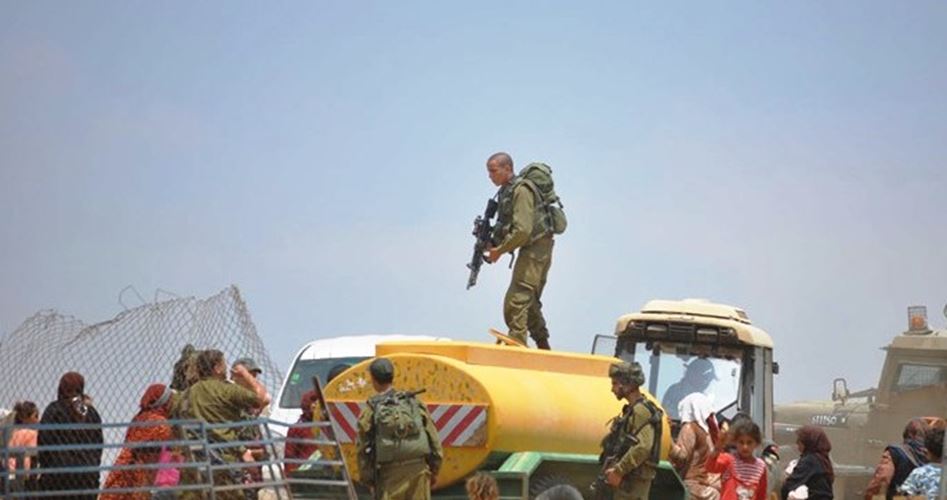Due to Israeli measures, Agriculture in Jordan Valley on verge of collapse

"The agricultural sector in the northern Jordan Valley is expected to collapse as a result of the recent measures taken by Israel regarding water distribution in the area. Palestine's rich "food basket" is heading towards an unknown future."
With these words Mohammed Sawafta, a Palestinian farmer from the northern Jordan Valley town of Bardala, began talking about Israel's new decision to deny the Palestinians access to water. The move will take effect after two months.
The decision was made after the Israeli-controlled water networks in the Jordan Valley have been completely changed.
Sawafta told the PIC reporter, "In Bardala, Karda, Ein al-Baida, and al-Maleh, there are about 8,000 dunums of land planted with crops that require irrigation throughout the year. These crops are an important part of the northern West Bank supply of vegetables which depends on water provided by the Israeli company of Mekorot since the 1970s."
"Years after Israel occupied the West Bank in 1967, it prevented the Jordan Valley Palestinians from using the water of the artesian wells which were dug during the Jordanian annexation of the West Bank for agriculture," he said, "In exchange, the Palestinians were promised to be provided with the needed quantities of water through Mekorot company."
Sawafta added, "Months ago, the Israeli occupation authorities changed all water networks in the area and added sensors and other control devices. They told us that they will stop providing us with water after two months, which of course means a complete cessation of the agricultural activity and an economic disaster."
Lack of support
Farmer Naser Daraghmeh told the PIC reporter, "We are facing all this alone. Nobody supports us, and the [Palestinian] government and water authority are only good at giving promises."
"We are trying to overcome the Israeli occupation's measures by digging wells on our own. A few days ago, the occupation forces stormed the area and confiscated equipment that we were using to dig a new well. We only want the government to support us when our equipment is confiscated so that we can continue digging wells and providing alternative water resources," Daraghmeh said.
Activist Feras Badran said that the problem is not limited to agriculture. Livestock is also threatened by the Israeli measures; livestock breeders have to buy water tanks to provide water to their animals, which costs them 20-30 NIS per one (nearly $7). "Insane prices," he stressed.
"Livestock breeders rely on cheese and dairy sales to cover the costs of food and water for their livestock. The prices are already low, and when this coincides with unreasonable prices for water supply, livestock breeding becomes useless. This requires supportive agricultural policies in the Jordan Valley with a different style," Badran added.
Complete control over water
Aref Daraghmeh, Palestinian expert, said that the process of controlling Palestinian water resources began decades ago when the Israeli authorities blocked water springs in the area and diverted their streams to flow into Israeli-dug groundwater wells.
Based on official statistics, he noted, the Israeli occupation authorities consume about 80% of the water basins shared with the Palestinians, while 80-95% of the feeding areas of these basins are located in the Palestinian territories.
Daraghmeh stressed that Israel's theft of the Palestinian water is the result of an occupation rejected by international norms and laws and condemned by the UN resolutions and international legitimacy.
The Jordan Valley is located over one of the main water basins in Palestine, but the irony is that the basin is forbidden to the indigenous people. Most of the population gets water by transporting it through tanks from far away, which depletes their financial capabilities in the war of survival that has been imposed on them.
Source: The Palestinian Information Center

WRITE YOUR COMMENT